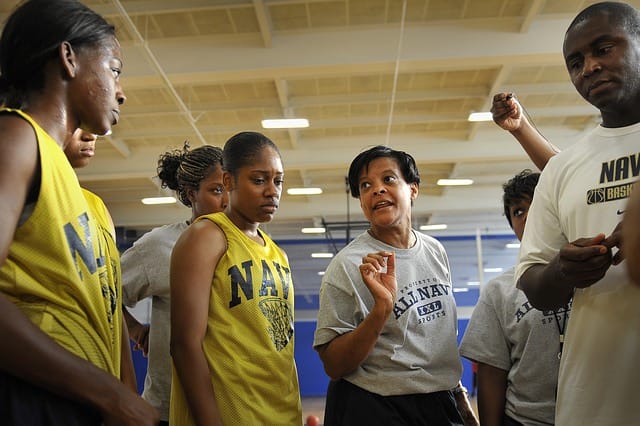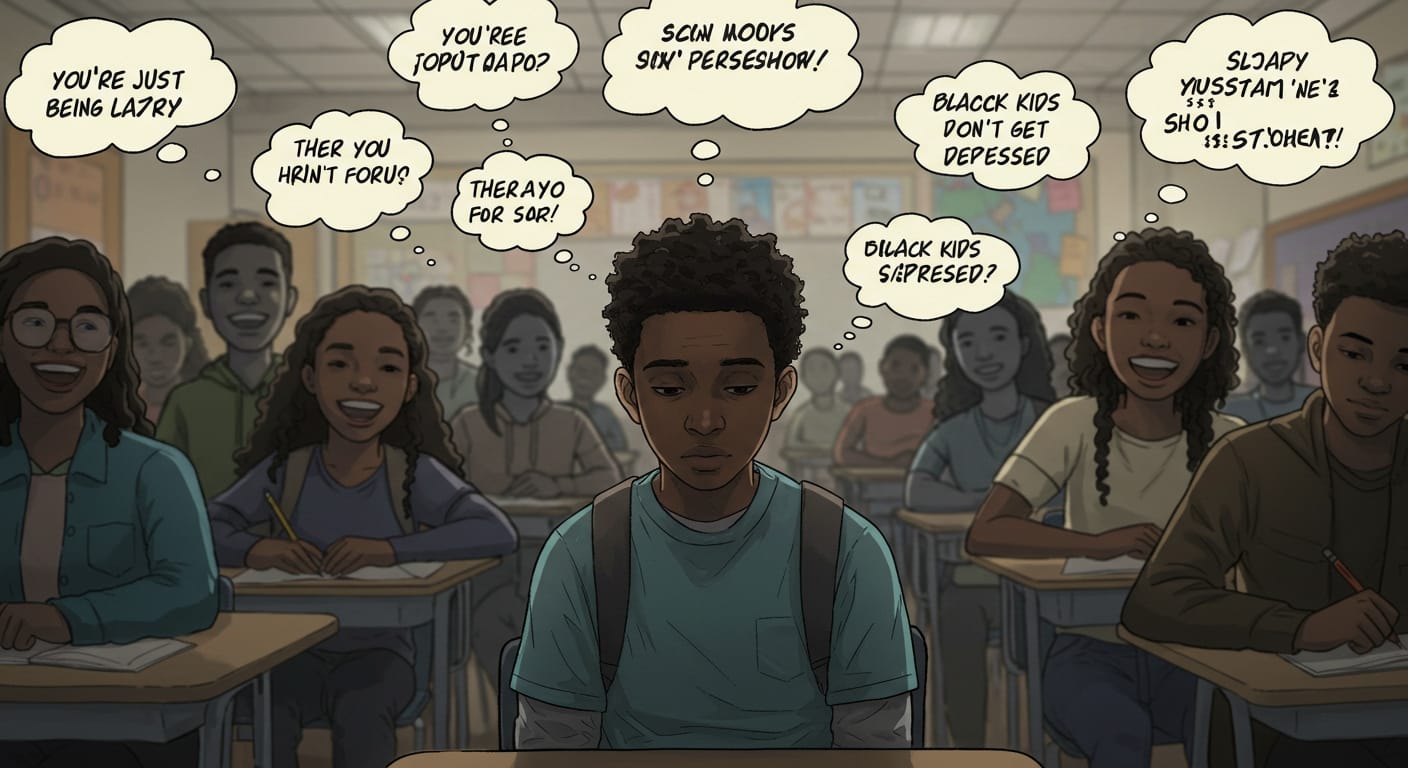False Beliefs About Mental Illness in the African American Community
Debunking the Illusion
There’s a persistent and harmful myth that mental illness—especially depression—is a “White people’s problem.” But sadness and despair do not discriminate. They affect people of all ages, races, and classes. Yet in many African American families, there’s a deep-rooted denial about mental health, especially in children.
“Black people don’t struggle with depression like others do.”
This myth causes pain. We do struggle. We do suffer. Black teens get depressed. And they deserve help, too.
1. “Therapy Is Not for Our Black Children.”
Therapy isn’t just about being evaluated and medicated. It’s about healing. It’s a place where young people learn to cope, grow, and rediscover their strength. But in many Black households, therapy is stigmatized or misunderstood as a last resort for the “crazy.” That mindset keeps too many teens suffering in silence.
2. “If They’re Depressed, They’re Just Weak.”
It takes tremendous courage and strength to ask for help. Depression is not weakness—it’s a clinical condition. Sadly, many Black teens face the added burden of being shamed or dismissed for showing vulnerability. These reactions can amplify the pain they’re already feeling.
3. “They’ll Be Labeled as Crazy or Lazy.”
Fear of societal judgment stops parents from seeking help. But prolonged sadness won’t go away on its own. Depression makes teens withdraw, sleep excessively, or seem unmotivated—not because they’re lazy, but because they’re in pain.
4. “Anxiety Is a White Problem.”
Social anxiety, panic attacks, and nervousness are not race-specific. Anxiety exists in all communities. It may be expressed differently, but the emotional and physiological toll is real for everyone—Black teens included.
5. “Just Snap Out of It.”
You can’t “snap out” of depression. That idea is both damaging and untrue. It minimizes a serious condition that may require long-term support and treatment.
6. “Therapy Will Make It Worse.”
Seeking help doesn’t cause harm—it prevents it. Many fear that therapy will stigmatize their child, but the truth is: ignoring the issue only deepens it.
7. “They Smile and Dance, So They’re Happy.”
Black teens often hide their pain behind performance. Just because they smile, joke, or dance doesn’t mean they’re okay. Our culture’s resilience is beautiful—but it can also mask suffering.
8. “They Handle Stress Well.”
Yes, many Black youth are strong—but that doesn’t mean they don’t feel overwhelmed. Strength shouldn’t equal silence. Even the strongest teens can crumble without proper outlets for their emotions.
9. “Teenage Depression Is Temporary.”
Depression isn’t just “a phase.” It can last for months or years, and its effects can echo into adulthood. It requires attention—not dismissal.
10. “White Doctors and Medicine Can’t Help My Child.”
It’s true—there’s a history of mistrust in healthcare. And cultural competence matters. But that doesn’t mean your child should be denied access to support. There are compassionate, qualified Black therapists, counselors, and support systems who can understand and uplift our children.
The Truth: Black Children Deserve Healing Too
Mental illness doesn’t skip our communities. Black children feel pain. Black children get depressed.
They also deserve hope, healing, and help.
Let’s replace shame with support. Let’s have the tough conversations. Let’s advocate for our youth, guide them toward mental wellness, and end the cycle of silence.



I never thought about the fact that most therapists are not African American. I am sure it helps to talk to someone with similar background, but boy will we celebrate the day where skin color really isn’t an issue!
Kristen @ A mind full Mom, Sorry I was not clear to you in this Blog Post 10 Misconception Talk about African American Teens & Depression. This article is not about the therapists. Since you mention “most therapists are not African American” We can’t expect therapist to only treat their own race this would be unethical.
Anxiety attacks are definitely not a race issue. I have personally been to therapy multiple times as well as still suffer from anxiety due to various situations. This post has opened my eyes so much. There are so many stories I could share. There is nothing weak about getting treatment for any type of mental disorder. Thank you for writing this.
This is a great topic and I’m so glad you touched on it. Depression and mental illness are both topics that have seemed taboo for years in the African American community, but as we have seen from so many recent events, it’s necessary to talk about. I’m glad you’re dispelling the myths and I hope that more us no matter our race will try to get help when it’s needed.
Thanks for exposing these myths. It’s sad that people don’t realize that AA suffer the same way other races do.
Wow look at all of these misconceptions of African Americans and depressions. The issue that I think is a big issue in the AA community is that they do not get the mental help they need due to being labeled or embarrassment. More parents in the AA community, if they have a teen that is depressed get them professional help and not trying to self diagnosis their condition or ignore their depressive symptoms it wont just go away like a cold.
Kiwi, AA have these believes about mental health that is base on fears. We need to use education effectively through awareness hopeful this will decrease the myth.
This is a serious subject and believe if a (trusted) professional they should. Family should be supportive too. This is a great article and wish this was talked about more often.
Very good points! It is a serious issue that every culture should be aware of to get help.
Very informative post about depression and AA Teens. We should all educate ourselves on this issue!
Thank you for shedding light on this topic! Depression in African American teens is real and shouldn’t be swept under the rug
As a black girl who suffers from anxiety I too know that these things are not true. I hope that we can get to a place where we all feel comfortable getting whatever it is that we need. Its always cool to take of ourselves and if that means therapy I say go for it.
Thanks for sharing.
Depression is real and I wish more people in the African American would seek the professional help they need to deal with mental illness. It irks me to no end when people say you’re crazy or something is wrong with you if you see a therapist. I think we need more post like this to encourage African Americans to seek the help they need to deal with depression.
Siobhan(BeFree Project) I will continue to inform others in our community about depression hopeful decrease the stigma of mental illness.
This is such a deep topic and I am really glad you opened up conversation around it. So many people feel ashamed of having mental illness and depression because our community doesn’t recognize it.
Adanna, Yes, Lots of Myth and stigmas surrounding Mental illness and even our health in the community.
I’m so glad I’ve never dealt with depression but I know it is a serious thing. My fiancé has dealt with it and sometimes its hard for me to understand cause I feel like just be happy but I know its deeper than that.
Kayvona, It’s hard for people who are depressed to just be happy and I am glad you understand.
This is a great article- tons of great information. Thanks for sharing.
These are all most certainly myths. There’s so much baggage that comes with it all. Being a strong woman is one that comes to mind. As black women we hold so much together that we forget that it’s OK to fall apart sometimes.
It really is a shame when teens fall into the depth of depression. I always wish that those who find themselves in that situation are able to seek help. No, it doesn’t mean that the person is weak.